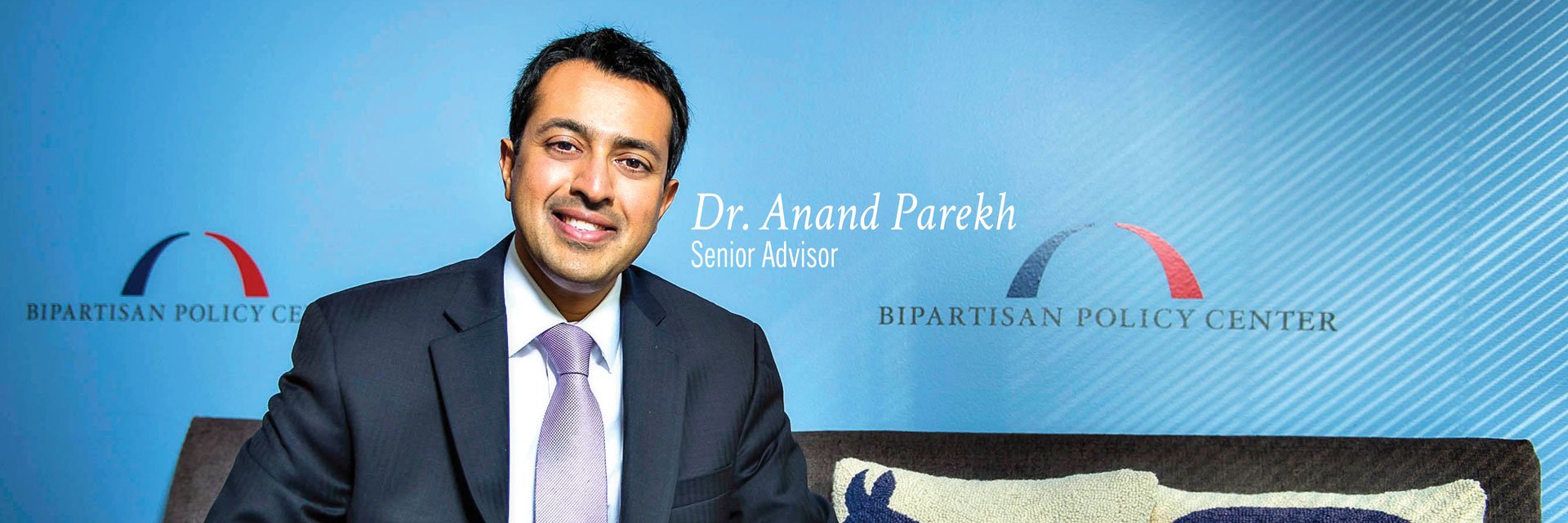Dr. Anand Parekh joined BPC in September to focus on health issues. He brings with him valuable experience both as a medical practitioner specializing in internal medicine and as a policy expert who served in the Department of Health and Human Services as a deputy assistant secretary from 2008 to 2015.
Q. What drew you to BPC?
After ten years in government and being a physician, I wanted to go somewhere where I could provide thought leadership on critical health policy issues. What drew me to BPC is the first word—bipartisan. My view is: regardless of our personal beliefs, we have to learn to better understand others with differing opinions. That makes for better policy or at least for dialogue based on goodwill and trust.
Q. What was a notable event from your time in government that illustrated bipartisanship?
Unfortunately, bipartisanship tends to happen more during crises, and it’s the same case in the health sector. In 2005, when we were worried about bird flu, H5N1, both parties came together to pass important legislation to increase our preparedness and response capabilities toward pandemic influenza. It happened again in 2009, when we actually faced a pandemic H1N1 (swine flu), and in 2014, when we needed to respond to Ebola. Certainly, emergencies and crises bring parties together, but that shouldn’t be the only time.
Q. In the 2016 election cycle, what health care issues should candidates address?
Over the next year, most of the debate is going to be about the Affordable Care Act, with Democrats talking about the importance of preserving it and Republicans saying it needs to be repealed. But beyond the politics of coverage, it will be important to discuss other important issues such as prevention, mental health, adequacy of the health workforce, and safe, affordable housing for the elderly. In addition, the leading causes of preventable death in this country continues to be tobacco use and obesity; we need to make sure candidates don’t lose sight of this.
Q. If you had a time machine, would you visit the future or the past?
Our nation has an incredible history to revisit, but I would probably go to the future. I would go to 2076 when I would be 100 years old, and I would want to see whether we, as a nation, have helped the world on important issues like energy, climate change, and access to water, but also whether prevention and wellness are at the center of our health care system. Will we have made the switch from simply treating illness to a focus on prevention and wellness?



